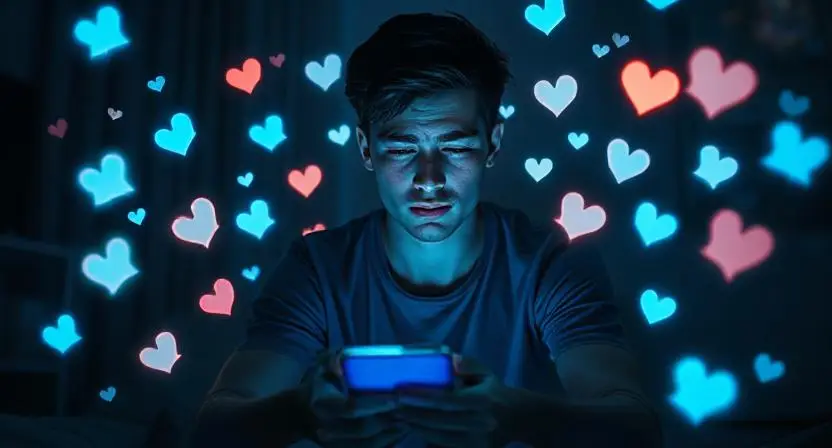Introduction
You check Instagram “for a minute” — and 40 minutes later, you feel drained, unmotivated, and slightly less happy with your life. Sound familiar?
This isn’t just a bad habit — it’s deeply tied to the psychology of social media.
Social media connects us, inspires us, and entertains. But beneath the surface, these platforms subtly shape our thoughts, moods, and self-image. In this article, we’ll explore how the psychology of social media can influence mental health, and how understanding it empowers us to build healthier online habits.
The Comparison Trap: A Key Element in the Psychology of Social Media
When we scroll through curated images of perfect lives, it activates one of the most studied effects in the psychology of social media: comparison.
Upward Comparison and Mental Health
Most of us compare “upward” — to people we see as more attractive, successful, or popular. This can lead to:
Lower self-worth
Social anxiety
Body dissatisfaction
📊 Studies in the field of the psychology of social media have shown that these comparisons directly impact our self-esteem and increase symptoms of depression.
Downward Comparison — A False Comfort
Sometimes we compare ourselves to others who appear “worse off.” While this might momentarily boost confidence, it often promotes judgment and disconnection.
The Dopamine Loop: Addiction and the Psychology of Social Media
One of the core insights from the psychology of social media is how platforms are designed to be addictive.
Every like, comment, or notification releases dopamine — the brain’s reward chemical. This forms a habit loop:
Post something → Expect engagement
Get likes → Brain rewards you
Crave that feeling → Post again
🔁 This dopamine loop, backed by research in behavioral science and the psychology of social media, mimics the same neural circuits involved in gambling addiction.
Practical Tip:
Turn off non-urgent notifications.
Delay your first scroll of the day by 30 minutes.
Create app-free zones in your day.
FOMO: A Psychological Trigger Built into Social Media
Another vital part of the psychology of social media is the Fear of Missing Out (FOMO) — that nagging sense that others are having more fun without you.
Why FOMO Hurts Us
From a psychological standpoint, FOMO is rooted in the fear of social exclusion — a primal fear. Social media constantly shows us what we’re not doing, making our current reality feel less satisfying.
📱 According to experts in the psychology of social media, FOMO can increase:
Anxiety
Sleep issues
Restlessness and compulsive checking
Tip:
Try a 24-hour social break each week. Journaling your thoughts during that time can reveal how your mind reacts without constant stimulation.
The Illusion of Connection: Loneliness and the Psychology of Social Media
It’s ironic — we’ve never been more digitally connected, yet so many feel emotionally distant. It shows that online interaction doesn’t always equal real connection.
Quantity vs. Quality
Hundreds of followers ≠ Deep friendships
Likes and emojis ≠ Real emotional support
📊 In a study rooted in the psychology of social media, researchers found that more time online often means less satisfaction with personal relationships — especially if engagement is passive (just scrolling and liking).
Tip:
Use social media as a bridge, not a substitute. Message a friend instead of just liking their post. Schedule a real chat or meet-up.
Performing for the Feed: Identity and the Psychology of Social Media
A major theme in the psychology of social media is self-presentation — how we show up online versus who we really are.
The Cost of Curation
We carefully choose what to post — often the happiest moments, best angles, or cleverest quotes. While this helps us express ourselves, it can also lead to “self-discrepancy” — the gap between our real and presented selves.
🎭 In the lens of the psychology of social media, this pressure can cause:
Burnout from always “being on”
Identity confusion
Feelings of inauthenticity
Ask Yourself:
Am I sharing this to express — or to impress?
Does this align with my real self or a highlight version?
Final Thought
The psychology of social media is powerful. It taps into core human needs — validation, belonging, identity. When used unconsciously, it can distort our self-image and emotional balance. But with awareness, we can rewrite our relationship with these platforms — on our terms.
.
It refers to how social media influences human thoughts, behaviors, emotions, and social interactions — including how we connect, compare, and form habits online.
Yes. It can lead to anxiety, low self-esteem, addiction-like behaviors, and loneliness — depending on how we engage with it.
Understand your triggers (comparison, FOMO, etc.)
Set boundaries around screen time
Prioritize meaningful connection over performance


Thank you for your sharing. I am worried that I lack creative ideas. It is your article that makes me full of hope. Thank you. But, I have a question, can you help me?
Please share your question, I will try my best to resolve.